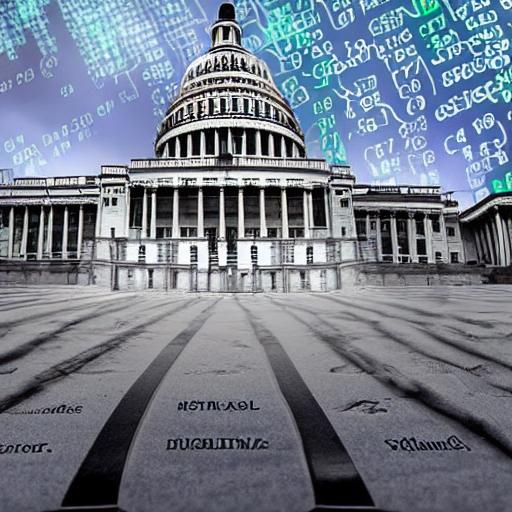The crypto sector is hopeful that the next US presidential election will place a more lenient enforcement candidate in the White House, ending protracted conflicts with Wall Street’s top cop.
Recent years have seen the former president Donald Trump cozy up to the $2.5 trillion cryptocurrency market; he has even invited supporters to a Bitcoin-focused fundraiser on July 27. Even though the Republican candidate for president has been critical of cryptocurrencies while in office, his latest remarks have been more positive, and attorneys anticipate that if he is elected, the US Securities and Exchange Commission will lessen its aggressive pursuit of the digital asset market.
The SEC’s cryptocurrency regulation policy will probably be reset and reconsidered under a Trump administration, according to Willkie Farr & Gallagher LLP lawyer Michael Selig. Resolving outstanding enforcement actions and investigations filed by the previous administration would logically be part of such a reset.
The SEC has increased its efforts in this sector under President Joe Biden, particularly in the wake of the 2022 collapse of the cryptocurrency exchange FTX. Numerous enforcement actions have been taken by the regulator, who frequently charges exchanges and broker-dealers with improper registration in violation of securities laws.
According to SEC Chair Gary Gensler, the majority of cryptocurrencies are securities and should be registered with the organization. Numerous cryptocurrency firms contend that the standards for registration are unclear or that their tokens are not securities.
Although several cases involving companies like Kraken, Coinbase, and Binance have been resolved by the SEC, there are still ongoing legal disputes. A few SEC investigations, including those into Ethereum and BUSD, a cryptocurrency issued by Paxos, a company with its headquarters in New York, under the Binance brand, have also been closed.
The different results have raised questions about whether tokens qualify as securities or not. The SEC’s legal action against the executives of Ripple Labs Inc. may help to resolve the situation.
The SEC claimed that Ripple raised over $1.3 billion by selling XRP tokens in an unregistered securities offering. The SEC was dealt a blow last July when a federal judge decided that XRP sales to retail investors on exchanges did not qualify as investment contracts.
In an interview on Wednesday, Brad Garlinghouse, the CEO of Ripple, stated that a resolution would come “very soon.”
While Trump was still in office, the SEC filed the action in 2020. He has not provided any specifics regarding his thoughts on cryptocurrency regulation. However, a number of business leaders and attorneys stated that they anticipate a decrease in enforcement actions in the event that he is re-elected.
Austin Campbell, a blockchain consultant and adjunct professor at Columbia Business School, reminded us that if Trump wins, the Republicans could quickly replace the current chair. This essentially means that rather than having to proceed, a lot of these cases, which have been shotgunned out at highly variable degrees of quality and producing highly variable rulings that are raising confusion, might all be settled.
Naturally, there is no guarantee that Trump will prevail in the election or that he will adopt a particular set of policies. Amidst rumors that Biden would withdraw to allow another Democrat to take his position on the ticket, he has been ahead in the most recent polls. It’s uncertain if that would occur, who would run against Trump, or how well they would do.
Furthermore, some analysts believe that even in the event that Trump wins, the SEC will drop or dismiss continuing legal action.
According to Emily Meyers, general counsel of venture capital company Electric Capital, securities enforcement proceedings are normally “apolitical” and there is minimal employee turnover brought on by political shifts.
According to Meyers, it’s improbable that any active cases will be dismissed, particularly those that are presently pending in federal court. A new administration—or even a second Biden administration—is more likely to result in fewer or different kinds of new cases involving crypto enforcement.
A similar stance was adopted by Ji Kim, chief legal and policy officer of the advocacy organization Crypto Council for Innovation.
The existing regulation-by-enforcement paradigm may alter, he warned, if President Trump is reelected and Chair Gensler steps down. That would, however, rely on the commissioners’ composition and leadership; nothing is certain.








